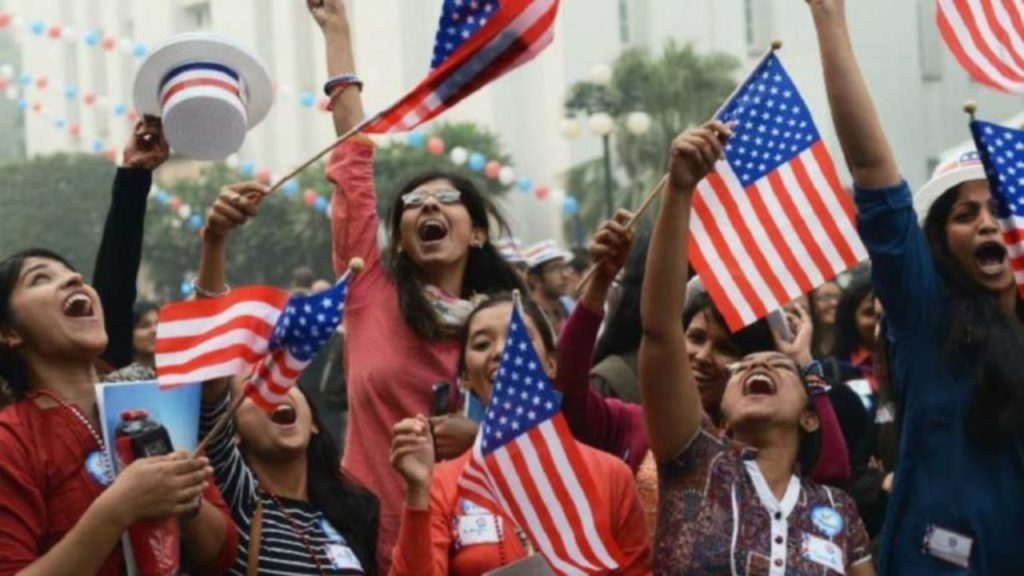H1B Wage Rule Postponed By Joe Biden; Hiring H1B Visa Employees Becomes Easier Now

The Biden administration on Friday issued a formal notification to delay the implementation of the previous Trump regime’s controversial rule to raise mandatory minimum pay for foreign workers on the H-1B visa, the most sought after among Indian IT professionals.
The H-1B visa is mostly for Indian IT professionals. Thousands of employees each year from countries such as India and China are hired by technical companies. The H-1B visa programme provides employers with a path to hire high-skilled workers only if they are unable to find eligible American workers. Due to abuses, the H-1B visa programme has become a cheap foreign labour pipeline that major companies are abusing to increase profits at the expense of American workers.
Delaying the effective date and implementation periods
The Department of Labour in its federal notification published on Friday said that it is considering whether to propose a further delay of the final rule’s effective date and accompanying implementation periods that are currently scheduled to take effect on May 14, 2021, and July 1, 2021, respectively.
Before further delaying the effective date and implementation periods, the Department will provide the public with an opportunity to comment, it said.
On February 1, the Department of Labour proposed to delay the effective date of the final rule entitled “Strengthening Wage Protections for the Temporary and Permanent Employment of Certain Aliens in the United States,” published in the Federal Register on January 14, 2021, for 60 days.
The Department proposed to delay the effective date of the final rule until May 14, 2021, following the Presidential directive as expressed in the memorandum of January 20, 2021, from the Assistant to the President and Chief of Staff, entitled “Regulatory Freeze Pending Review.” As stated in the proposal, the 60-day delay would allow agency officials the opportunity to review any questions of fact, law, or policy.
The Department received 57 comments from the stakeholder community. It has reviewed the comments received in response to the proposal and will delay the effective date of the final rule for 60 days, said the notification.
According to Mercury News, major Silicon Valley technology companies, which employ H-1B workers directly and via staffing firms, rely heavily on the visa and push to increase the annual 85,000 caps on new visas, claiming that they need more of them to secure the world’s top talent.
“Critics point to abuses and allege that the visa is used by outsourcers and staffing companies, as well as by tech giants, to replace US workers with cheaper foreign labour, drive down wages and facilitate outsourcing,” it said.
The rule is a carry-over from the administration of former President Donald Trump, which proposed revisions to proposed mandatory salaries after losing a court battle to organisations including the Bay Area Council over an initial version.
If imposed, workers on the H-1B at the lowest wage level would have to receive at least the 35th percentile of the prevailing wage for their job type and location, compared to the 45th percentile in the initial version. Workers at the highest wage would have to receive the 90th percentile, compared to the 95th percentile, the report said.
Founded in 1979, FAIR is the country’s largest immigration reform group. “President (Joe) Biden often portrays himself as a man from the ‘working class’ who is a tireless defender of the American worker,” said FAIR President Dan Stein. “
“Yet his administration is set to postpone, by at least a year, an important rule change that prevents unscrupulous employers from using the H-1B programme to undercut American wages while ensuring that companies that truly need skilled foreign workers have access to the best and the brightest,” he alleged.
“This random lottery selection process places no weight on wage or skill levels and fails to ensure businesses have access to the best and brightest workers possible. Worse, the lottery creates a scenario where American workers could be replaced by foreign workers who can be paid significantly less or who possess considerably lower skills,” said Stein.

Comments are closed, but trackbacks and pingbacks are open.